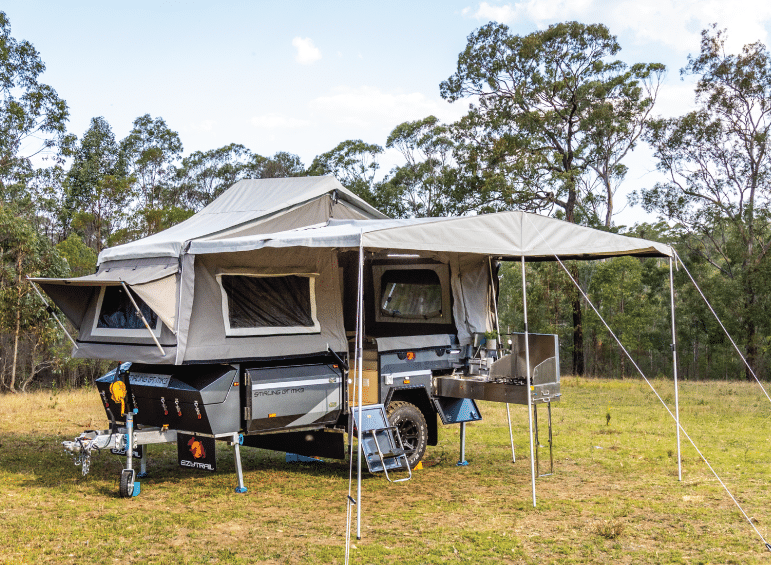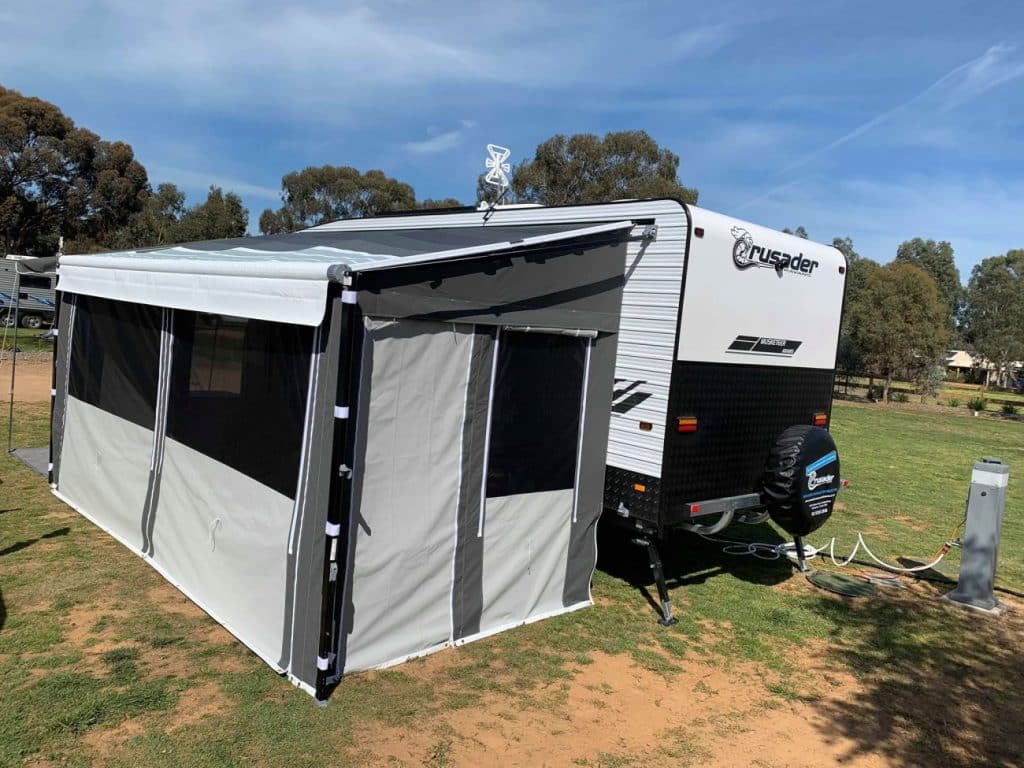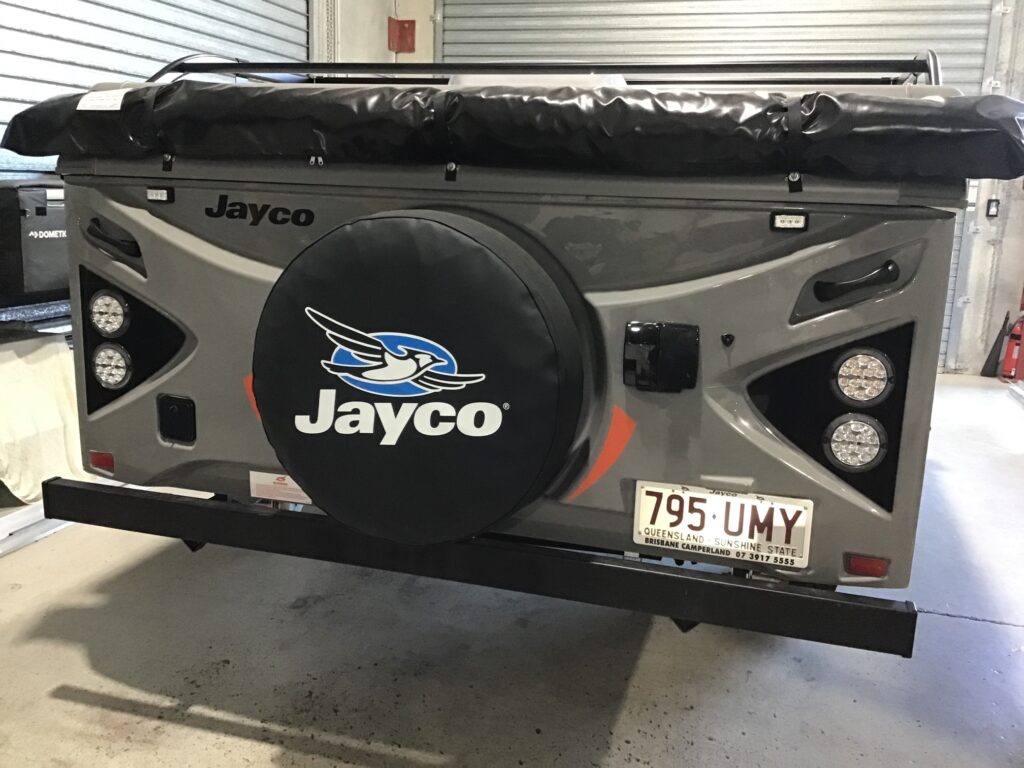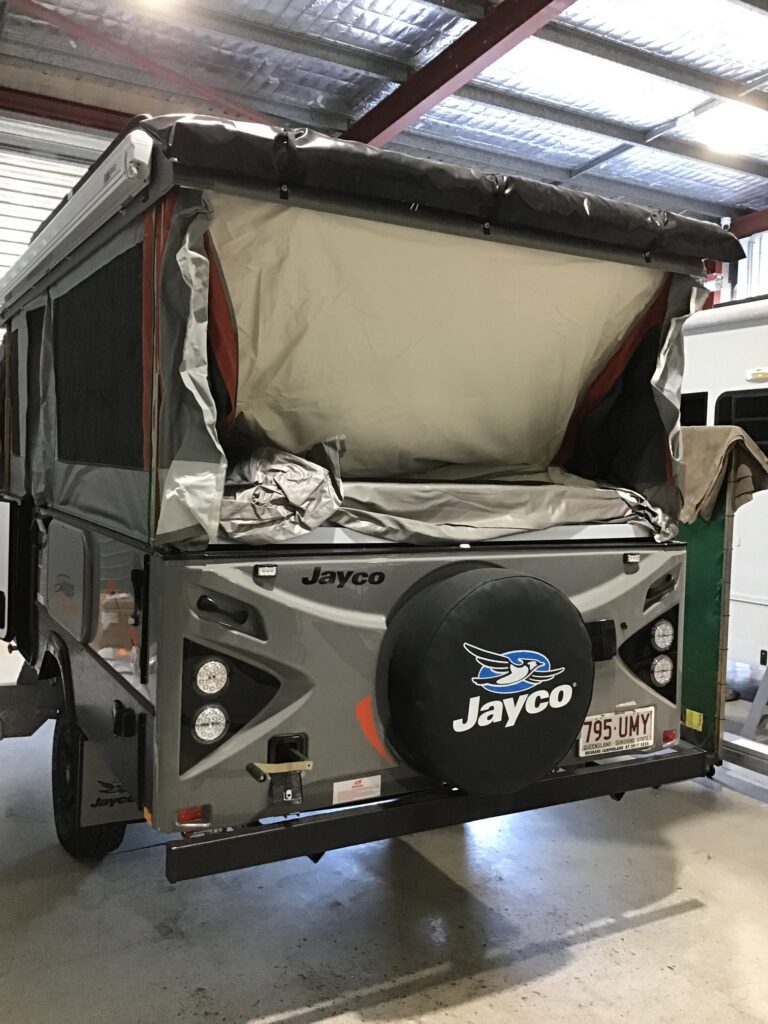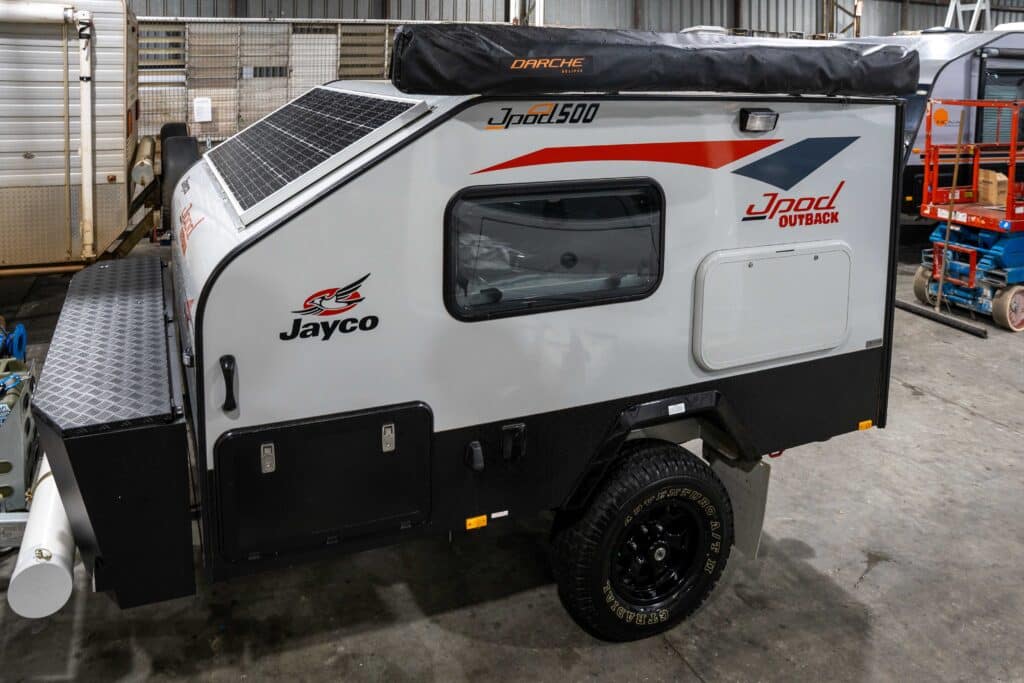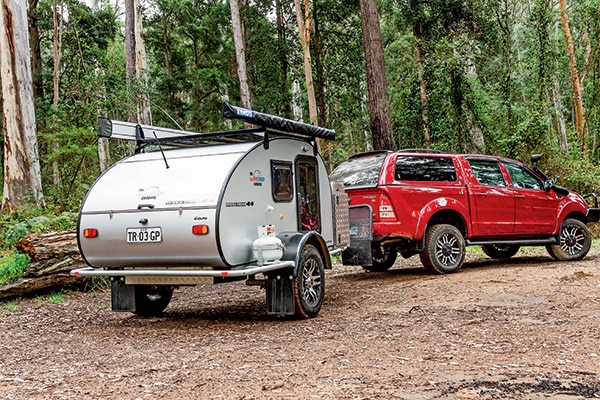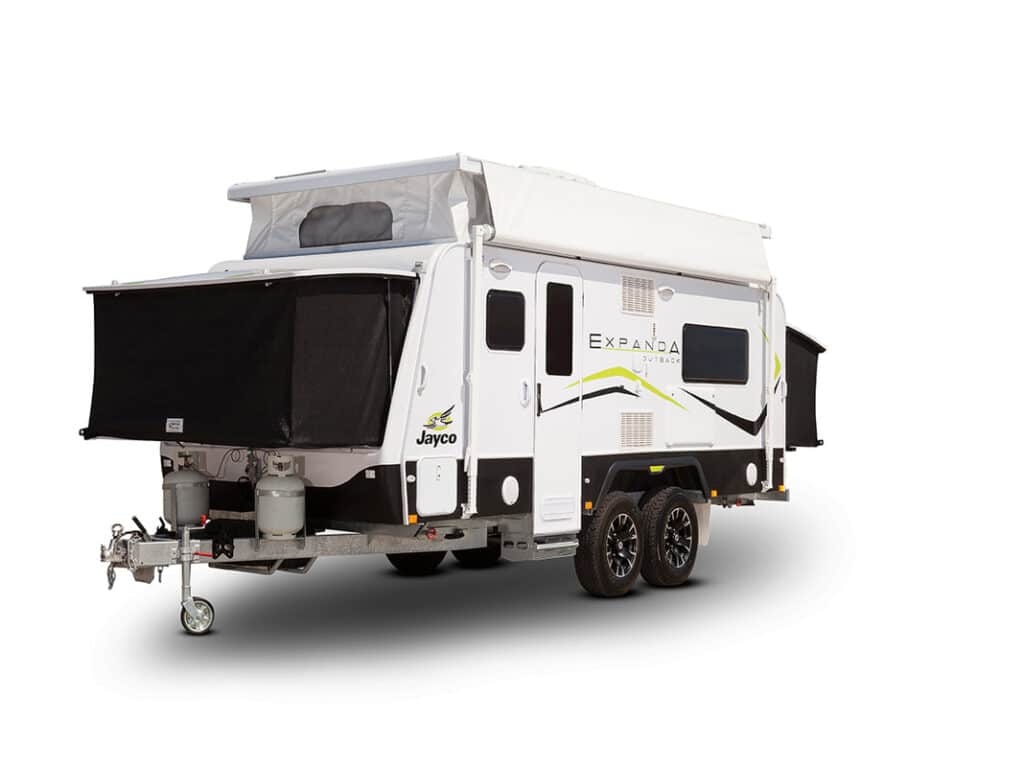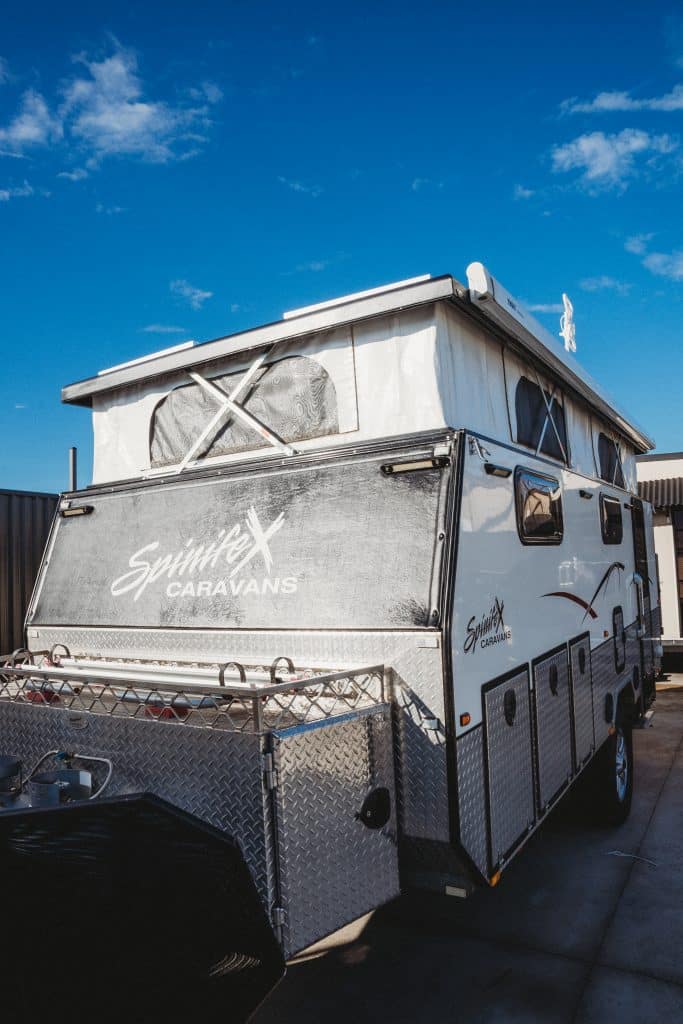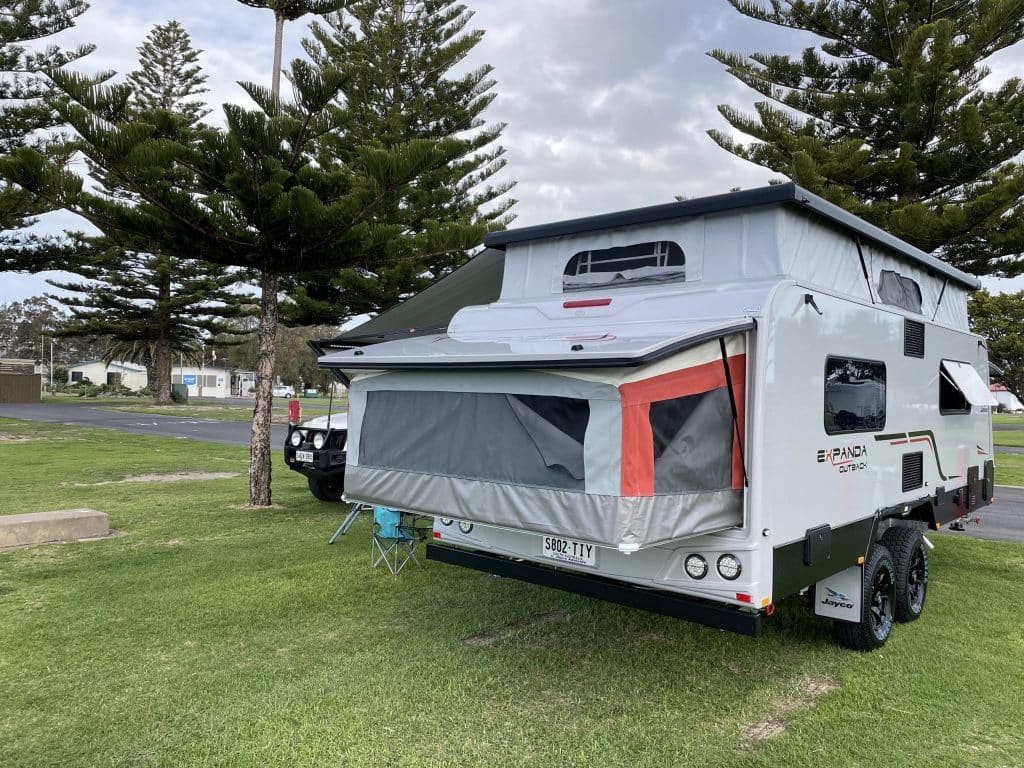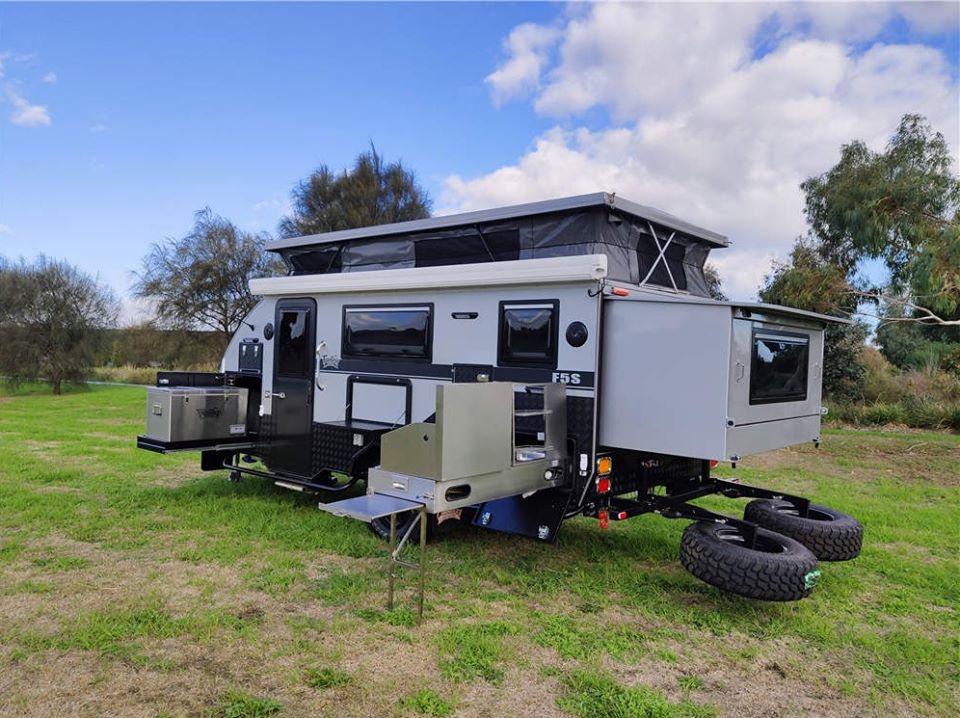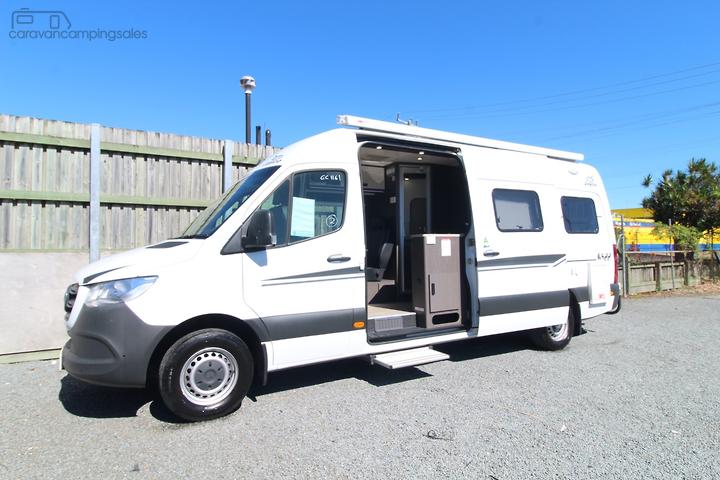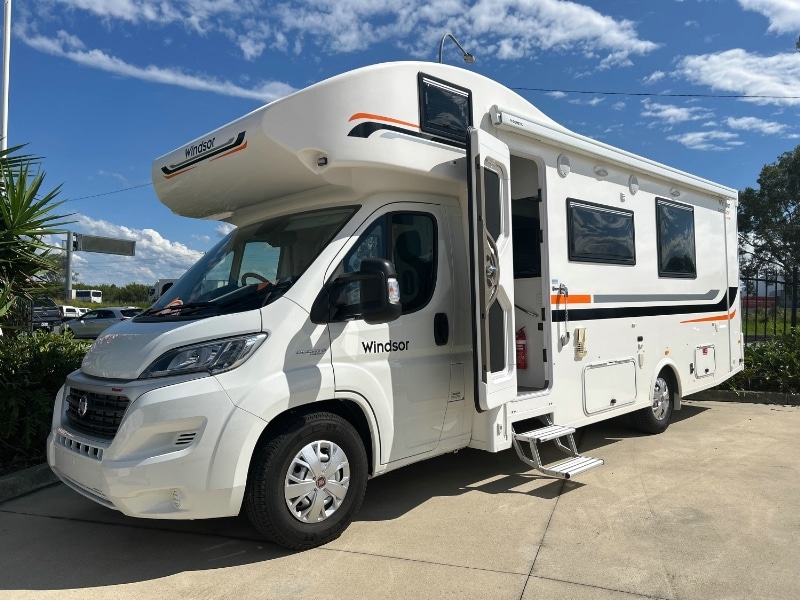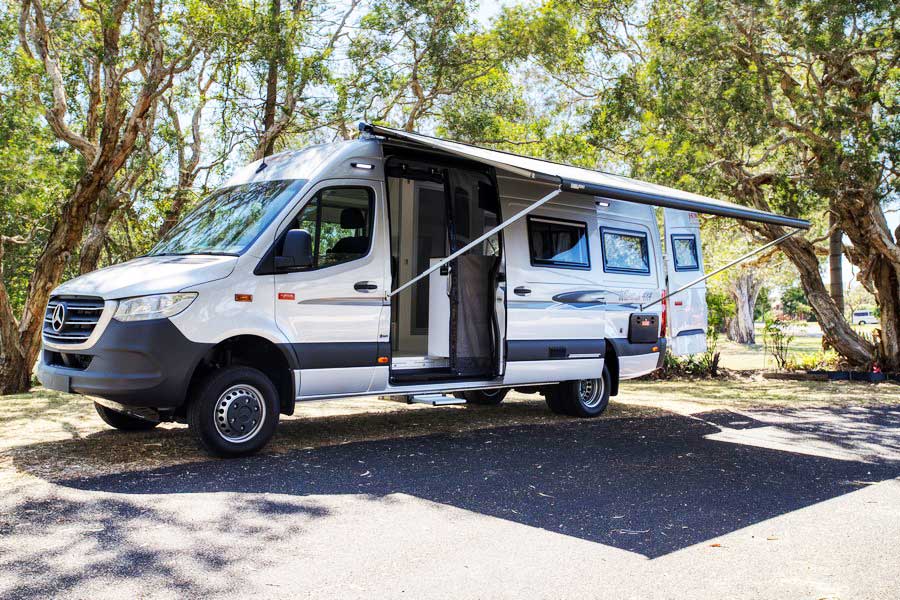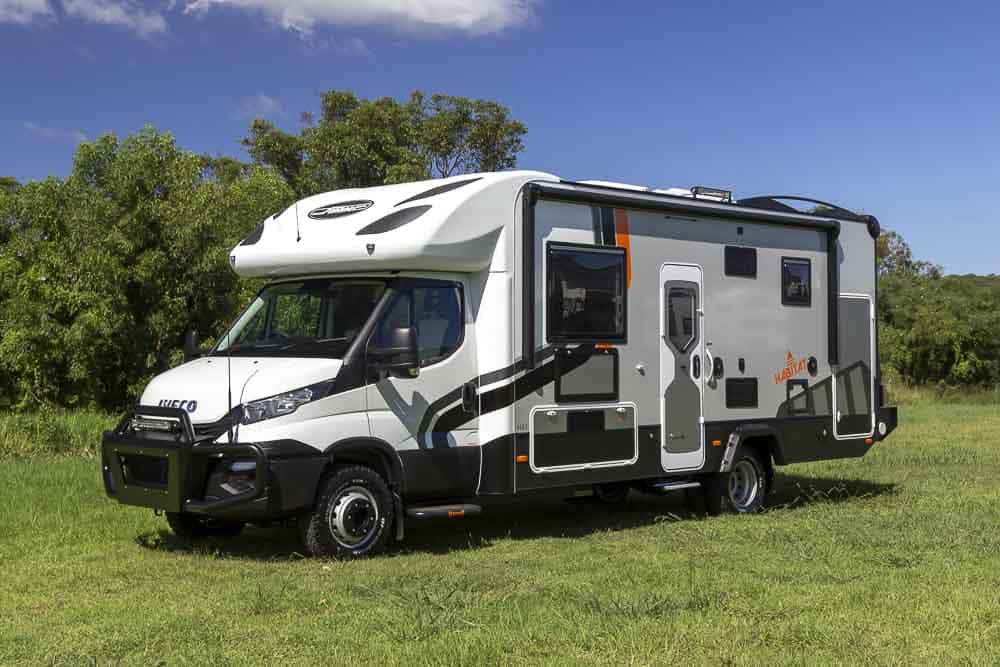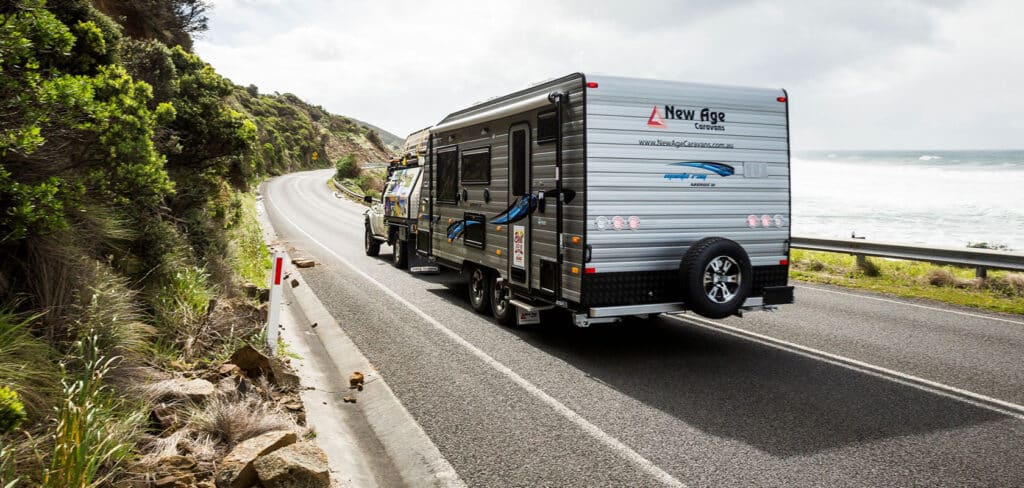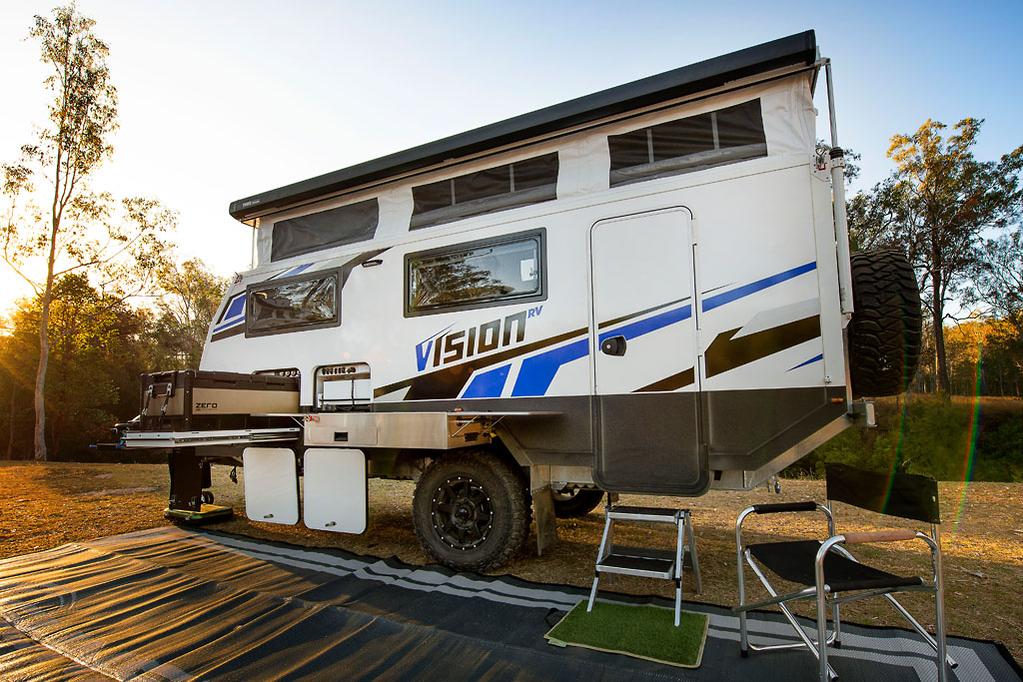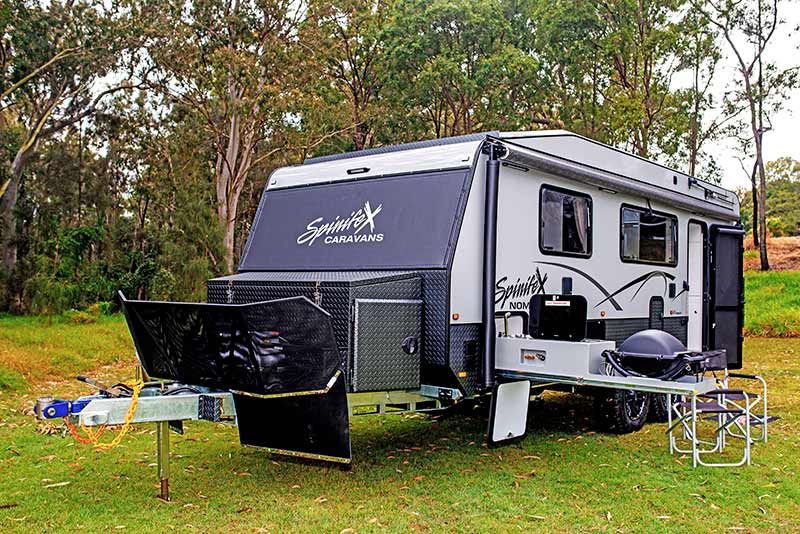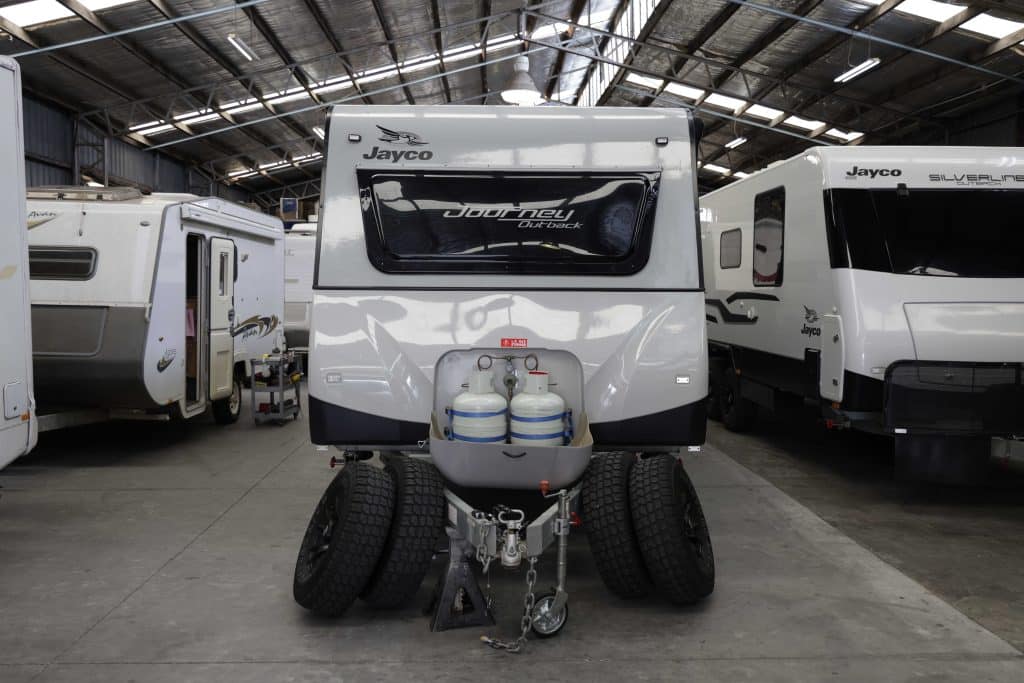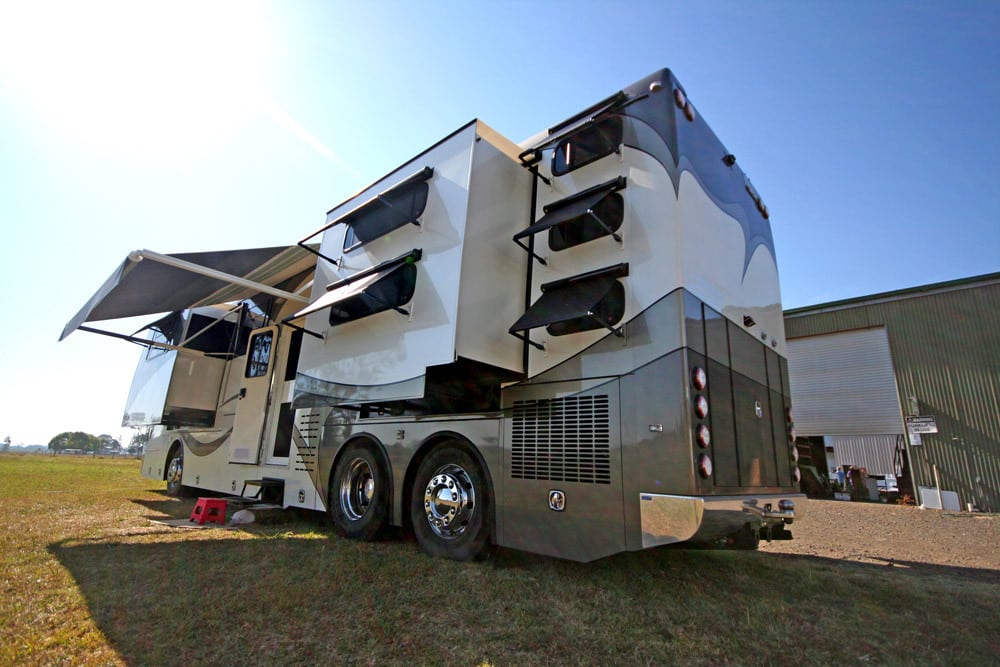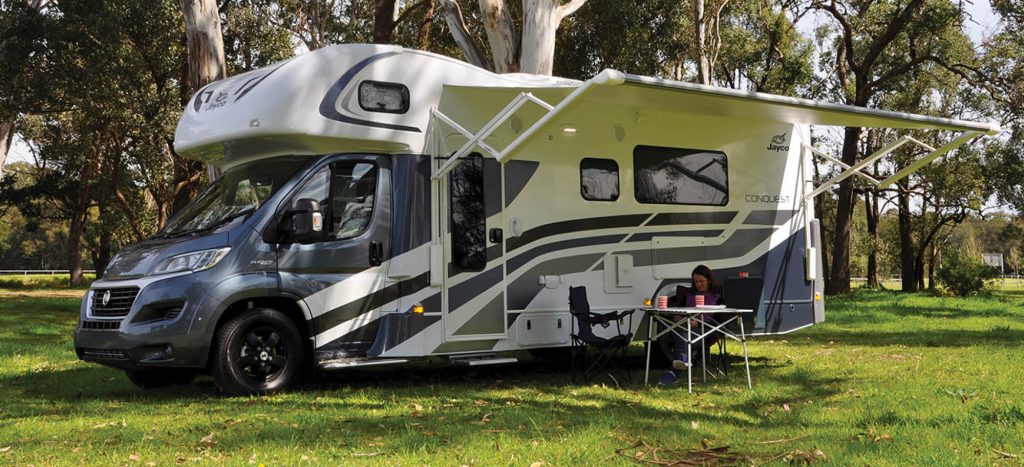So you’ve taken the plunge and want to travel with an RV in tow? What next? How do you choose what is the right option for you?
A great place to start is a selection criteria that could include budget, inclusions/finish, tow capacity requirements (will your vehicle tow it?), payload (how much additional kg’s do you need?), layout, sleeping arrangements and capacity, off-road capability, brand/s, vintage, construction materials and more. Decipher your must haves, nice to haves and what doesn’t really matter.
Let’s dig into some options:
Tent Trailers
Consider tent trailers your entry point into the RV world. These affordable and compact trailers consist of a box trailer for storage and a fold-out tent for sleeping. Perfect for smaller vehicles, they’re ideal for weekend getaways or camping trips. Some even come in off-road versions, making them suitable for exploring rugged terrains.
Pros:
- Affordable: The most budget-friendly RV option.
- Compact & Lightweight: Easy to tow with smaller vehicles.
- Quick Setup: Ideal for weekend getaways or short camping trips.
- Off-road Options Available: Perfect for exploring rugged terrain.
Cons:
- Limited Space: Can feel cramped, especially for families.
- Less Comfort: May not offer the same level of comfort as other RV types.
- Weather Dependent: Rain or strong winds can disrupt setup and enjoyment.
Camper Trailer
Camper trailers occupy a sweet spot between tent trailers and caravans, offering more comfort and features than tent trailers while remaining more manageable than caravans. Here’s a breakdown of their pros and cons:
Pros:
- Off-Road Ready: Many camper trailers are specifically designed for off-road adventures, with features like higher ground clearance and sturdier suspension.
- More Comfortable: Compared to tent trailers, camper trailers provide more living space, often with built-in beds, kitchens, and storage compartments.
- Relatively Affordable: Generally less expensive than caravans and motorhomes.
- Easy Towing: Their lighter weight makes them easier to tow with a wider range of vehicles.
- Quicker Setup: Setting up a camper trailer is usually faster than a caravan, with features like pop-up tops or fold-out sections.
Cons:
- Limited Space: While more spacious than tent trailers, they can still feel cramped, especially for larger families or long trips.
- Weather Exposure: Canvas walls offer less insulation and protection from the elements compared to caravans or motorhomes.
- Fewer Amenities: May have fewer built-in amenities compared to larger RVs, requiring you to bring additional camping gear.
- Setup Considerations: Folding furniture and deploying awnings might be involved in setting up camp.
Security Concerns: Canvas walls are generally less secure than metal caravan walls.
Pop-Top Camper Trailers
Pop-top camper trailers are a specific type of camper trailer that offer unique advantages and considerations.
Pros:
- Compact & Lightweight: When closed, the pop-top design lowers the trailer’s height, making it easier to store, tow, and manoeuvre, especially on off-road adventures.
- Fuel Efficiency: The reduced profile contributes to better fuel efficiency for your towing vehicle.
- Quick Setup: The pop-up roof significantly reduces setup time compared to traditional camper trailers with multiple walls to raise.
- Ventilation & Views: When popped up, the canvas allows for excellent ventilation and provides a more open and airy feel with scenic views.
Cons:
- Limited Standing Room: The lowered ceiling height when closed can feel restrictive, especially for taller individuals.
- Weather Dependence: Canvas construction offers less insulation and protection from extreme weather conditions.
- Storage Considerations: Pop-up mechanisms might limit the available storage space inside the trailer when closed.
- Security Concerns: Similar to other camper trailers, canvas walls offer less security compared to metal caravan walls.
Potential Maintenance: The pop-up mechanism might require occasional maintenance or repairs.
Campervans
Campervans are essentially vans transformed for comfortable camping. They often feature a raised roof for extra headroom, along with built-in cupboards, seating, beds, and a mini-kitchen. This versatility makes them perfect for couples or small families who want a comfortable camping experience with the convenience of using the van for everyday driving when back home.
Pros:
- Versatile: Doubles as a daily driver and a comfortable camping vehicle.
- Maneuverable: Easy to navigate tight spaces and campsites.
- Fuel Efficient: Smaller size translates to better fuel economy compared to motorhomes.
- Comfortable Living: Offers a comfortable living space for couples or small families.
Cons:
- Limited Space: Can feel cramped, especially with more people or extended trips.
- Fewer Amenities: May have fewer built-in amenities compared to larger RVs.
Off-Road Capability Varies: Check the specific campervan’s suitability for rough terrain.
Caravans
Ah, caravans – the quintessential Aussie RV! These towed trailers offer a comfortable and convenient home base for your explorations. They come in a variety of sizes, from compact and lightweight options to spacious luxury models. Caravans provide all the essential amenities you need for a relaxing holiday, including sleeping quarters, a kitchen, a lounge area, and often a bathroom.
Pros:
- Comfortable & Spacious: Offers more living space than tent trailers or campervans.
- Variety of Options: Available in a wide range of sizes and features to suit various needs and budgets.
- Affordable: Generally more affordable than motorhomes.
- Unmatched Flexibility: Can be towed by vehicles with sufficient capacity, allowing for exploration freedom. Detach the caravan at camp and use your vehicle for day trips.
Cons:
- Towing Requirement: Needs a vehicle with adequate towing capacity. Some people may not be comfortable with towing larger caravans.
- Setup Time: Requires levelling, connecting utilities, and deploying awnings.
Storage Needs: Dedicated storage space is needed when not in use.
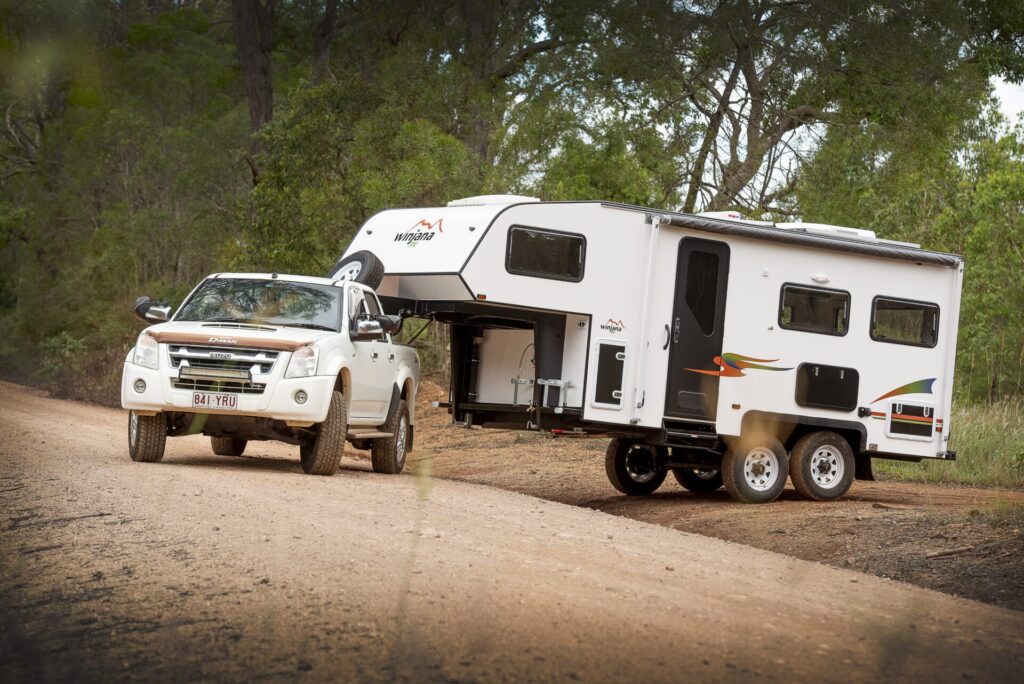
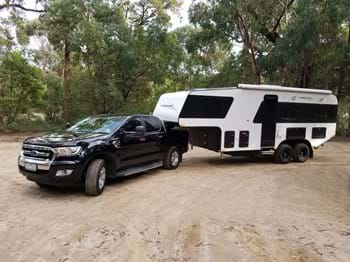
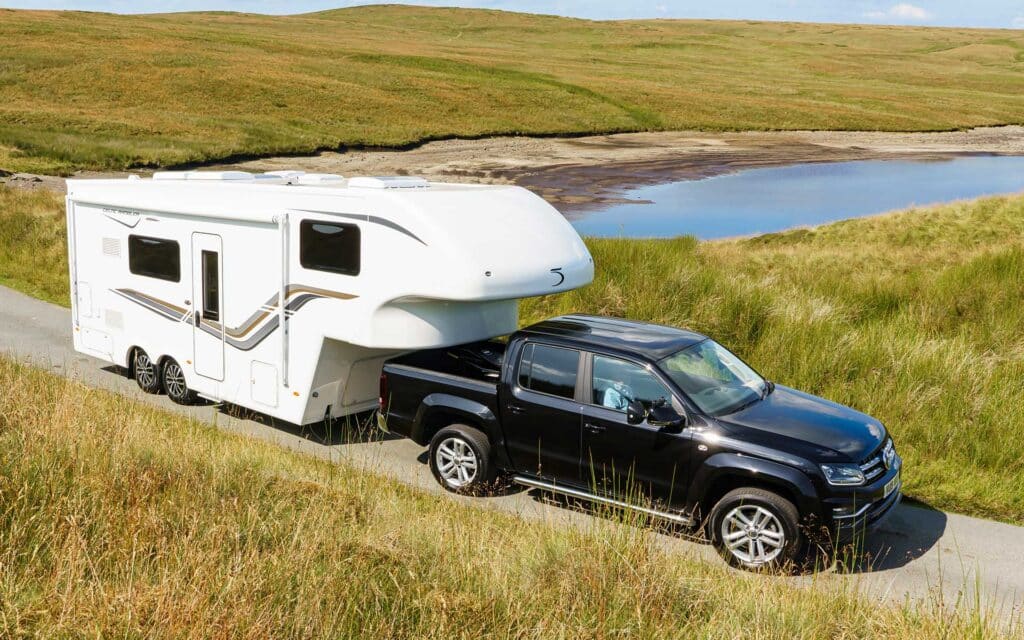
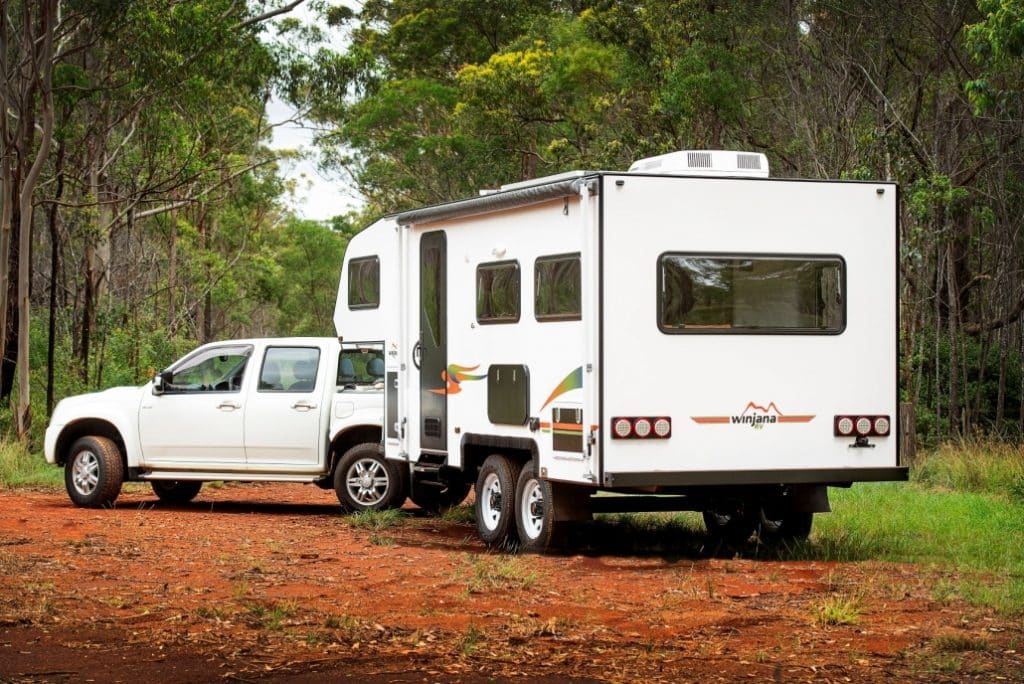
Fifth Wheelers
These large trailers connect to your towing vehicle via a special hitch, providing a stable and spacious living area. Offering all the amenities of a motorhome or a large caravan, with additional space for larger families or groups, they’re ideal for those who prefer a home-away-from-home feel on the road. However, their size does require a powerful vehicle for towing.
Pros:
- Ample Amenities: Provides all the comforts of home, perfect for larger families or groups.
- Stable Towing: Connects to the towing vehicle via a special hitch for increased stability.
Cons:
- Powerful Vehicle Required: Needs a powerful vehicle with a high towing capacity. You will also lose storage space on the rear of your vehicle.
- Limited Manoeuvrability: Large size makes navigating tight spaces or campsites challenging.
Campsite Restrictions: Some campsites may have restrictions on size or weight for fifth wheelers.
Motorhomes
Motorhomes are essentially self-contained apartments on wheels. Built on truck chassis, they offer all the comforts of a caravan – toilets, showers, air conditioning – with the added advantage of a drivetrain. This allows you to drive directly to your campsite and set up camp with ease. Motorhomes are perfect for families or those who want all the amenities without towing a separate trailer.
Pros:
- Self-Contained: Offers ultimate convenience with amenities like toilets, showers, and A/C.
- Drive & Camp: No need for separate towing, allowing for spontaneous stops.
- Spacious Living: Provides ample living space for families or groups.
- Easy Setup: Minimal setup required compared to caravans.
Cons:
- Expensive: Typically the most expensive RV option to purchase.
- Fuel Inefficient: Large size translates to lower fuel economy.
- Less Maneuverable: Can be challenging to navigate tight spaces or campsites.
- Limited Off-Road Capability: May not be suitable for all terrains.
- Breakdowns: What is going to be your mode of transport if the motorhome is in for repairs?
Still not sure?
This is where caravan and motorhome shows come into play. You can go to the one place and check out all the options in the one day, including pricing. There we have it folks!! A run through of all the different types of RV’s that you can buy including pros and cons. Whichever way you choose, have a professional, independent person look over the RV before you buy.
Made your mind up? Read our previous blog about top tips when buying a caravan.
